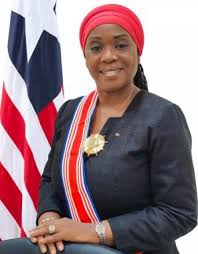Liberia’s pursuit of a non-permanent seat on the United Nations Security Council marks a pivotal moment for the West African nation, underscoring its re-emergence on the global stage. This bid represents not just a desire for international recognition but a strategic move to amplify Africa’s voice in global affairs, particularly in the context of ongoing geopolitical complexities, including the Israeli-Palestinian conflict, the war in Ukraine, and shifting global aid landscapes. Liberia’s campaign, spearheaded by Foreign Minister Sara Beyslow Nyanti with the full backing of President Joseph Boakai, has garnered significant support from regional and continental bodies like the African Union and ECOWAS. This collective endorsement reinforces Liberia’s position as a key player in West Africa and underscores the continent’s confidence in its ability to contribute meaningfully to international peace and security. The timing of Liberia’s candidacy is particularly significant, coming after the successful terms of smaller West African nations like The Gambia and Sierra Leone on the Security Council. This precedent further strengthens Liberia’s case, demonstrating the region’s growing influence and capacity to engage effectively in global diplomacy.
Liberia’s journey from a nation requiring UN peacekeeping assistance to one contributing personnel to UN and regional operations, such as those in Mali and Darfur, highlights its remarkable transformation. The country’s impressive record of four peaceful democratic transitions since 2005 solidifies its reputation as a beacon of stability and constitutional governance in a region often challenged by political volatility. This commitment to democratic principles, coupled with its active role in regional peace mediation and advocacy for democratic norms, positions Liberia as a credible and valuable addition to the Security Council. The bid also underscores Liberia’s desire to share its unique experiences and perspectives, particularly in navigating post-conflict recovery and reconstruction, with the international community.
As a Least Developed Country (LDC), Liberia offers a crucial and often underrepresented perspective on the critical link between development and security. Its potential presence on the Security Council provides a platform to advocate for policy changes that address the root causes of instability, such as poverty, inequality, and weak governance. Liberia’s proposed priorities, including equitable access to development financing, sustainable debt relief for vulnerable states, and fairer trade regimes for African economies, reflect its deep understanding of the challenges faced by developing nations and its commitment to multilateral cooperation as a pathway to sustainable peace. This focus on development issues adds a vital dimension to the Security Council’s deliberations, ensuring that the needs and concerns of LDCs are adequately considered in global security discussions.
Liberia’s progressive stance on gender equality and human rights further strengthens its candidacy. The election of Ellen Johnson Sirleaf, the first female president in Africa and a Nobel Laureate, has positioned Liberia as a global leader in women’s political empowerment and post-conflict reconciliation. The country’s ratification of key international treaties on human rights, transitional justice, and child protection further demonstrates its commitment to upholding international norms and protecting vulnerable populations. The establishment of Liberia’s Truth and Reconciliation Commission (TRC), one of the earliest and most significant initiatives of its kind in Africa, stands as a testament to the nation’s commitment to post-conflict justice and national healing. These advancements in gender equality and human rights provide a valuable model for other nations grappling with similar challenges.
Liberia’s leadership in climate and environmental governance further distinguishes its candidacy. As custodian of one of the largest remaining tracts of the Upper Guinean Forest, a critical biodiversity hotspot, Liberia has actively engaged in international partnerships, particularly with Norway, to promote forest conservation, develop carbon credit systems, and enhance climate resilience. This commitment to environmental stewardship underscores Liberia’s understanding of the interconnectedness between climate change, security, and sustainable development. By championing climate security as a pillar of global peace, Liberia aims to bring a crucial and increasingly relevant dimension to the Security Council’s agenda, highlighting the importance of environmental considerations in maintaining international stability.
In conclusion, Liberia’s bid for a non-permanent seat on the UN Security Council represents a culmination of its post-conflict recovery, democratic progress, and regional leadership. Its candidacy offers a unique blend of experience and perspective, encompassing post-conflict reconstruction, democratic governance, development challenges, gender equality, human rights, and climate security. Liberia’s presence on the Council promises to amplify the voices of LDCs, promote a more holistic approach to security that integrates development and environmental considerations, and contribute to a more representative and effective UN Security Council capable of addressing the complex challenges facing the world today. The international community’s support for Liberia’s bid signifies a recognition of its remarkable transformation and its potential to make a substantial contribution to global peace and security.














